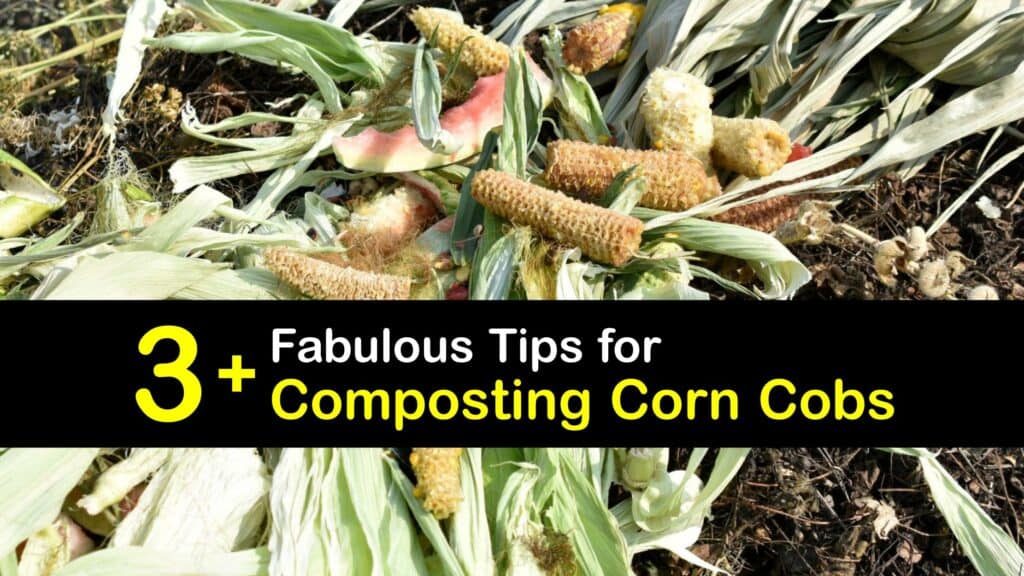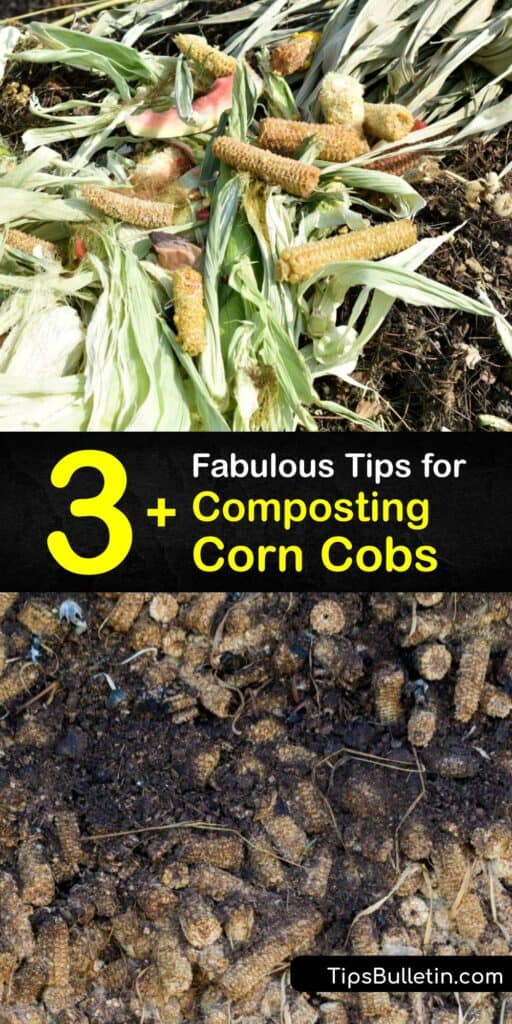Are you curious about how to compost corn cobs? Many people enjoy a delicious, golden ear of corn, or sweet corn cob jelly, particularly in the summer when corn crops are ripe and thriving. The husk is dense and inedible, with nothing to offer regarding flavor. After skinning the cob, most people consider what’s left as waste.
Yet, the avid gardener knows what remains is an opportunity to create a nutrient-rich compost with many benefits for their plants. The organic material decays easily over time. It adds nutrients to the garden soil, which growing plants need to develop into big, beautiful crops you and your family enjoy.
How can you compost corn cobs, and how difficult is it? Composting corn cobs is a straightforward way for someone to reduce their environmental impact and boost garden health. The best part is it happens from the comfort of your backyard. Follow along as we explore the protocols for composting corn cobs.

Tips and Tricks for Composting Corn Cobs
Some food waste is a natural consequence of using fresh fruits and veggies. Not every part of a fruit or vegetable is edible, much less very scrumptious. For example, composting orange peels is very common because of the waste. Sweet corn is no exception. After you eat the corn kernels, the husks and corn cob should be recycled for other purposes, which presents an excellent opportunity to compost.
But for some, composting might not come naturally. They may ask, “Can you compost corn cobs?” The cobs are dense and seem difficult to break down, even for the toughest microorganisms, but it is manageable. Read on for tips about how to compost corn cobs.

What Is Composting?
Most gardening articles recommend composting and its benefits – but what exactly is it? Composting is a controlled aerobic procedure in which microorganisms consume oxygen, carbon, nitrogen, water, and organic materials and break them down over time into finished compost.
But be sure to watch out for pests when beginning your compost bin or pile. Fruit flies live in your compost bin when food scraps begin to sit for too long. Turning your compost is necessary for its cycle.
Decomposition happens in months, turning organic waste that would have otherwise gone into the trash into something beneficial for your plants. Green material such as vegetable husks, rinds, grass clippings, and other organic waste goes in a compost bin to begin the composting process.
At the end of a composting cycle, a material with an earthy aroma and a black, crumbly consistency remains. This compost material may be added directly into your garden soil, providing additional nutrients to your fruits or vegetables.
Can You Compost Corn Cobs?
Can corn husks be composted? It’s possible to compost corn plant parts since they are an organic material.
Since all parts of the corn plant are composed of organic matter, it’s an ideal brown material to include in your composter. Put corn cobs in compost to increase nutritional value and reduce food waste.
How to Compost Corn Cobs
Composting isn’t always a quick process. Microorganisms take months to a year to break down organic material into usable compost. Still, there are some techniques to speed up the process. A hot compost pile is more efficient than a cold compost pile.
The primary difference between hot and cold compost piles is how often they’re turned and whether the compost mix is assembled thoughtfully. Composting tomatoes and other food products are considered hot materials. They should be layered with cold materials such as leaves and dead plants. The heap should be hand turned often.
Fresh corn husks, leftover corn cobs, and other parts of your maize decompose better if broken down into smaller pieces before you add them to the compost bin. Small pieces make finer compost and speed up composting time, sometimes by months.
The most efficient compost heap is hot compost made of small materials. Separate the husk and the cobs and break them up before putting corn cobs in compost.
Benefits of Corn Cob Compost
Are corn cobs good for compost? The short answer is yes; organic material is incredibly beneficial to soil because compost adds rich nutrients to a soil mix. Your old corn plants and food parts decompose and provide newly planted seeds with the boost they need to thrive.
The next time you’re chucking an old corn cob, consider whether it might be more useful in the composter. All the parts – the corncob, husk, and corn stalk – may be added to your compost pile and repurposed to serve you a second time.
Composting corn cobs is a painless way to reduce your carbon footprint. Maintaining a home composter limits your outgoing trash and helps next year’s crops grow bigger and better.

If you loved this concise article about how to compost corn cobs, please share this information with your friends and family who wonder, “Can you compost corn cobs?” on Pinterest and Facebook.